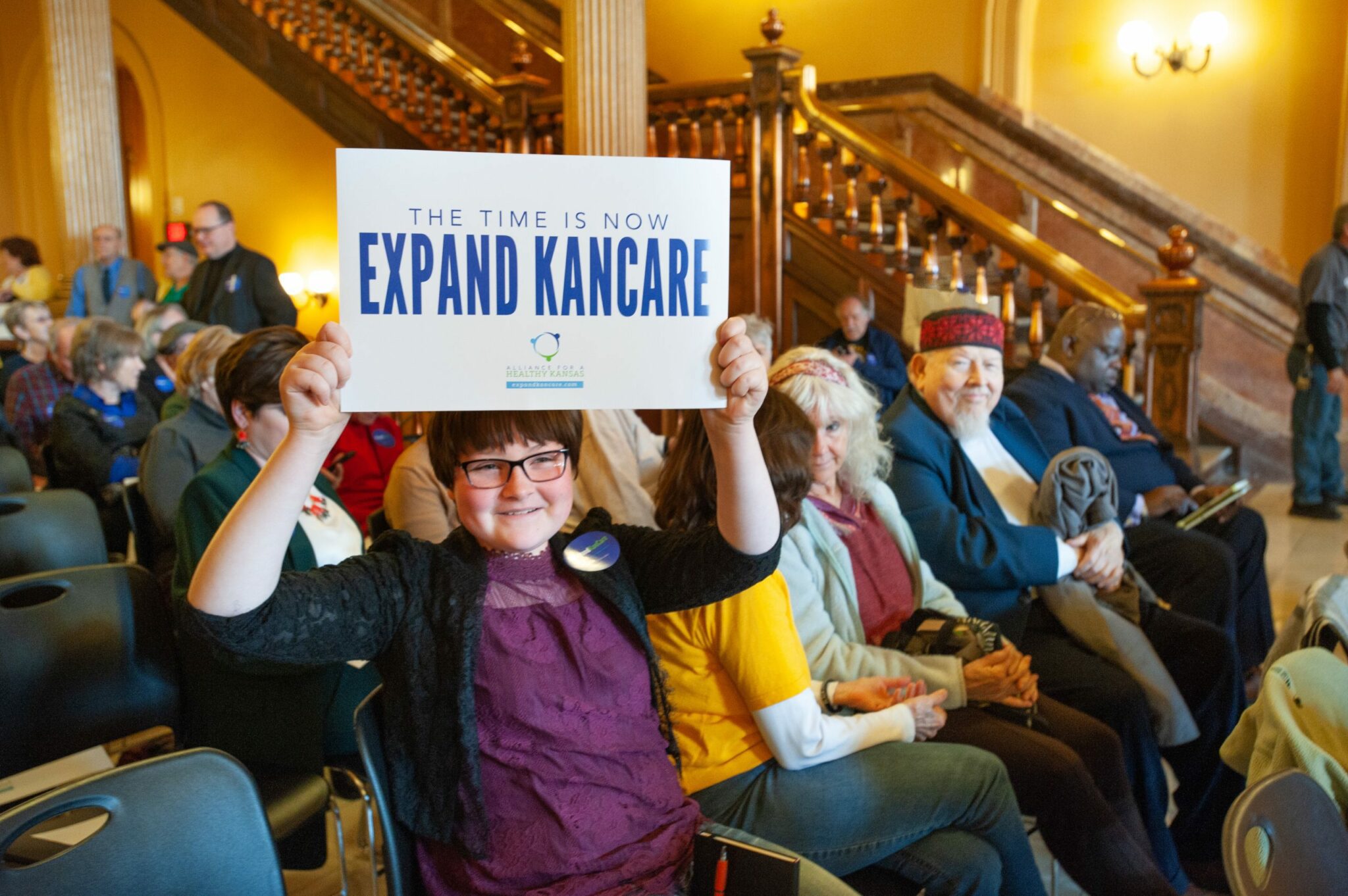The REACH Foundation was established in 2003 with a mandate to improve the health of uninsured and medically underserved people in our six-county service area. Our work is primarily carried out through grants and partnerships, but we also engage directly in public policy discussions and activities to advance our mission.
Why engage in public policy? The foundation’s resources will never be enough to fill gaps in public funding for essential services, such as affordable health care, says Brenda Sharpe, REACH President and CEO. For this reason, REACH has kept Medicaid expansion at the top of its policy agenda for the last eight years.
 Missouri voters approved a ballot initiative in 2020 supporting Medicaid expansion, putting Missouri on a path toward implementation in 2021. Meanwhile, Kansas lawmakers have continued to opt out of this federally supported program, which covers 90% of the state’s costs.
Missouri voters approved a ballot initiative in 2020 supporting Medicaid expansion, putting Missouri on a path toward implementation in 2021. Meanwhile, Kansas lawmakers have continued to opt out of this federally supported program, which covers 90% of the state’s costs.
Expanding KanCare, Kansas’s Medicaid program, is good for consumers and health providers. More than 165,000 Kansans fall into the health coverage gap, earning too much to qualify for KanCare and too little to be eligible for financial help to afford a coverage plan.
- To date, 38 states have acted to expand Medicaid, including every state bordering Kansas. That number has grown as states have seen the health and economic gains other states have made.
- Medicaid expansion supports work. Access to coverage and care helps people manage their health and maintain employment. It also supports financial health at home, reducing the burden of medical debt.1
- Medicaid expansion has been shown to save lives, improve chronic health conditions and reduce the risk of infant death.2
- Dozens of studies, and the experiences of other states, have shown the positive impact of expansion on job growth, tax revenues and economic activity.3
As a result of the COVID-19 pandemic, Kansas health leaders estimate that more than 165,000 Kansans will fall in the coverage gap in 2021 – an increase of 15,000 since last year.
“Policy work is messy and rarely advances in a straight line, but given the scale of the health access challenges, we’ve remained engaged because it’s critical to securing sustainable improvements in coverage and care,” said Sharpe. “Continuing to decline expansion will not save the state money – it simply gives up the opportunity to strengthen families and the Kansas economy. The experiences of other states can help show us the way. The time to expand Medicaid in Kansas is now.”
Review the REACH 2021 Policy Priorities.




